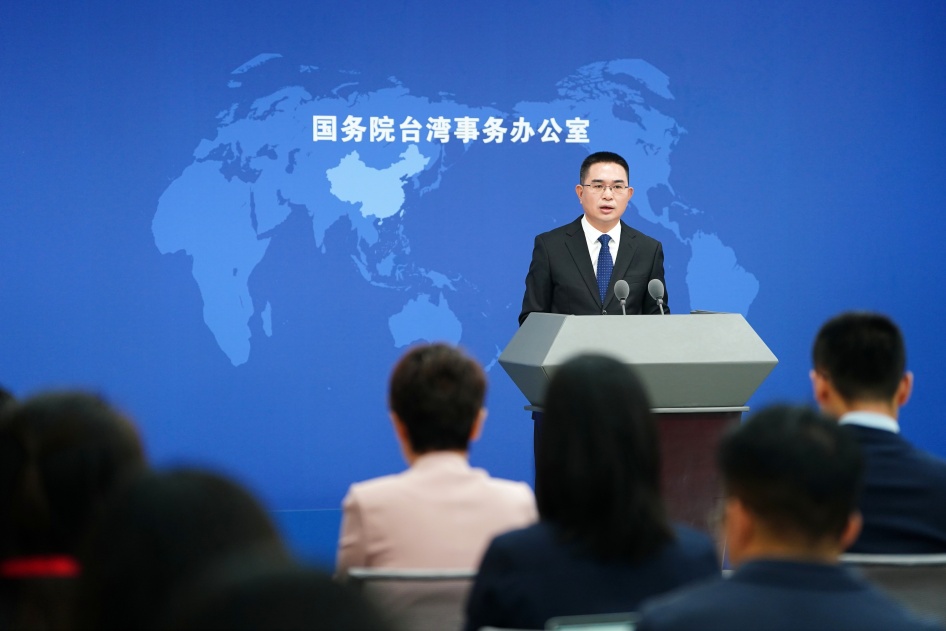(New York) – The Chinese government should immediately quash the conviction of and release a Taiwanese political activist who was sentenced to nine years in prison for “separatism,” Human Rights Watch said today. On August 26, 2024, a court in China’s Zhejiang province convicted Yang Chih-yuan (楊智淵), 34, for political activities carried out in Taiwan, a neighboring democracy over which the People’s Republic of China claims sovereignty.
The case is the first known in which the Chinese authorities have charged a Taiwanese national with “separatism” for allegedly seeking to split the country in violation of article 103 of China’s Criminal Law. The law is typically used in politically motivated prosecutions of Uyghurs, Tibetans, and other ethnic groups who are Chinese nationals.
“The Chinese government’s prosecution of Yang Chih-yuan for exercising his basic rights in Taiwan has effectively criminalized being Taiwanese,” said Maya Wang, associate China director at Human Rights Watch. “The use of a national security law coupled with an outrageous prison sentence appears to be Beijing’s latest attempt to intimidate the Taiwanese people and reinforce its claims of sovereignty over Taiwan.”
On August 3, 2022, more than seven months after Yang arrived in China to live, Chinese authorities detained him in Wenzhou, Zhejiang province. In April 2023 he was formally arrested for alleged “separatist” activity. At the time, Yang was not involved in any political activities in China, and was teaching and competitively playing the strategy game Go, according to Taiwan’s Mainland Affairs Council, the government agency responsible for China-Taiwan affairs.
Yang’s “crimes” include establishing a minor political party called the Taiwan National Party in Taiwan, and promoting Taiwan’s inclusion in the United Nations between 2008 and 2020.
The Chinese authorities repeatedly and seriously violated Yang’s rights to due process during the legal proceedings against him. The Chinese state-owned media, CCTV, confirmed after Yang’s detention in August 2022 that he had been placed under “residential surveillance in a designated location;” a form of detention that Human Rights Watch has repeatedly criticized, and that United Nations human rights experts have said is “tantamount to enforced disappearance.”
Yang was incommunicado for two years, during which time he had no access to legal counsel or his family in violation of international human rights law. Chinese laws allow the authorities to deny national security detainees access to family and lawyers under “residential surveillance,” leaving them at serious risk of torture and other mistreatment.
Yang’s trial took place behind closed doors. Details of his sentencing were not announced until September 6, and judicial authorities still have not released any documents or evidence from the trial.
In June, two months prior to Yang’s trial, the Chinese government issued new judiciary guidelines that make it a criminal offense to do anything broadly related to Taiwanese independence. Peaceful activities and advocacy, such as teaching and writing about Taiwan’s democracy and history independent of China or promoting Taiwan’s inclusion in the United Nations, would be construed as criminal. Taiwanese who have engaged in such activity would be subject to arrest in China.
The judicial guidelines violate Taiwanese people’s rights to freedom of expression and association, and the right to public participation in Taiwan, Human Rights Watch said. The guidelines also permit the use of in absentia trials and the death penalty for “especially serious or … vile” activity in violation of international law.
In a second case, Chinese authorities have detained the Taiwan-based Chinese-born publisher Li Yan-he (李延賀), commonly known by his pen name Fu Cha (富察), for alleged “separatism.” In March 2023, national security police in Shanghai detained Fu. According to Taiwan's Mainland Affairs Council, Fu has been detained for publishing works that are “not in line with the Chinese Communist Party’s view of history.”
Fu is editor-in-chief of the Taiwanese Gūsa Publishing (八旗文化), which has published books critical of the Chinese government. In early 2023 he become a Taiwanese citizen, and was visiting China to renounce his People’s Republic of China nationality and see his family. The authorities have been holding Fu under “residential surveillance in a designated location.”
The guidelines and the two cases appear intended to reinforce the People’s Republic of China’s sovereignty claims over Taiwan.
“The Chinese government is tightening its grip over the lawful activities of Taiwanese in Taiwan,” Wang said. “Beijing’s intimidation and arbitrary arrests of Taiwanese under national security charges is an alarming escalation of its efforts to control the rights to free speech and association beyond its borders.”








